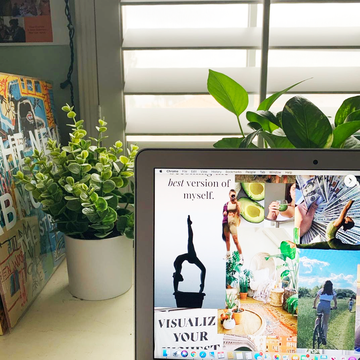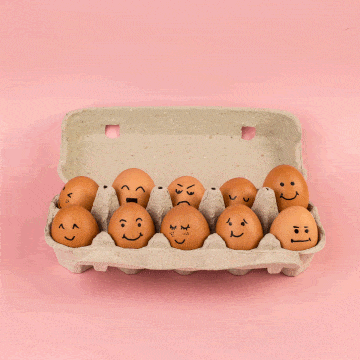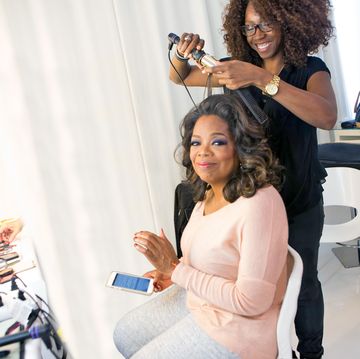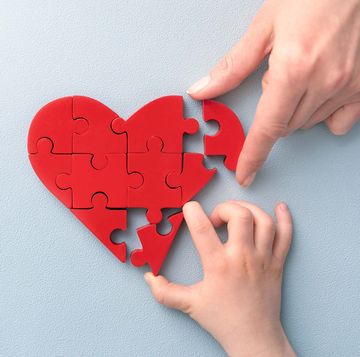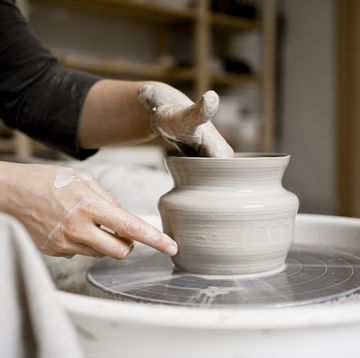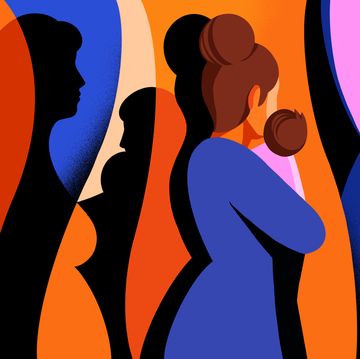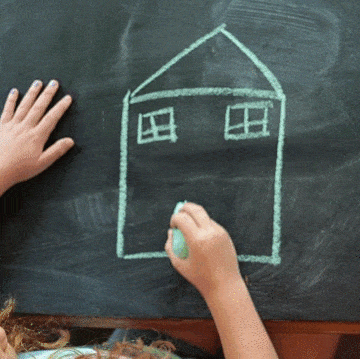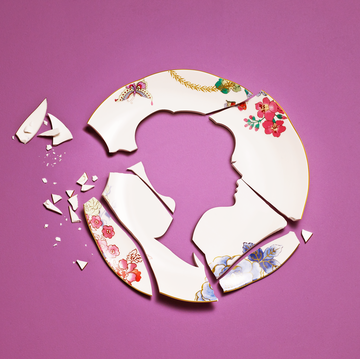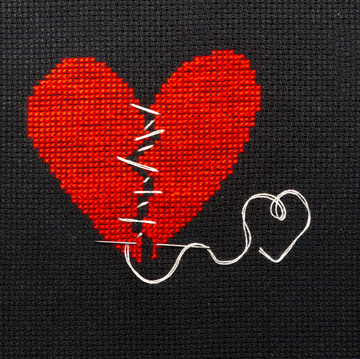Death, divorce, unemployment, major illness or injury—these cataclysmic life events are famously stressful. But what about the smaller, daily irritants that poke the surface of your consciousness like tiny shards of glass in your psyche? They may not feel as destructive (in fact, they might not feel like anything at all), but studies show that they can make you mentally and physically sick. We asked experts for simple ways to manage—and outmaneuver—them.
The stressor: Social isolation
It’s winter; the pandemic marches on; many of us are still working remotely. No wonder we feel so meh. But loneliness doesn’t just feel bad; it can actually shave years off your life, says author Dan Buettner, who has dedicated his career to studying the habits of the world’s longest-living people. (His most recent book is The Blue Zones American Kitchen.) “People who have a strong sense of community and belonging tend to live longer than their more isolated counterparts,” he says. That’s putting it mildly: Research has linked social isolation to increased risk of high blood pressure, heart disease, obesity, a weakened immune system, anxiety, depression, cognitive decline, Alzheimer’s disease, and even death. “Chronic loneliness has been shown to do the same damage to our long-term health as smoking 15 cigarettes a day,” says Guy Winch, PhD, cohost of the Dear Therapists podcast and author of Emotional First Aid.
The solution: Scheduled connection
In Blue Zones, or places around the world where people live the longest (including Okinawa, Japan; Sardinia, Italy; and Loma Linda, California), faith plays a major role in bringing people together. If you belong to a religious community, Buettner suggests taking a more active role. If not, join a weekly meditation class or walking group, volunteer, or start a book club. The key is to connect with others who have shared values and invest the time and effort required to forge meaningful bonds.
At home, prioritize family time. Establish daily rituals that bring you together, like sitting down to dinner every night, phones out of reach. Married or single, identify your inner circle. When it comes to friendships, focus on quality, not quantity, says psychiatrist Pooja Lakshmin, MD, the author of Real Self-Care. Set aside time each week to be with your people, even if you live far apart. Book a recurring wine “meeting” over Zoom.
The stressor: Scrolling to self-soothe
If you’ve ever sought refuge in a viral video of a golden retriever puppy canoodling with a duck, join the club. In 2017, pre-Covid, 43 percent of Americans admitted to checking social media constantly, according to the American Psychological Association’s 2017 Stress in America survey. Sure, you might come to social media for the puppies. But it’s the filtered, carefully edited images of impossibly perfect bodies, faces, vacations, and homes that slowly eat away at your well-being while you search endlessly for the next like, DM, or meme. Researchers reporting in the Journal of Neurology and Neurophysiology say social media platforms trigger the same dopamine loop involved with addiction. Getting texts, likes, or messages is intrinsically rewarding, but when the fleeting high wears off, the user looks for more, leading to a never-ending, distracting cycle that can interfere with more sustained and meaningful sources of fulfillment. For women, particularly younger ones, social media has also been linked to increased levels of anxiety, depression, sleep disturbances, and body image issues.
The solution: Observing a tech Shabbat
Taking a one-week hiatus from social media alleviates depression and anxiety, according to a 2022 study published in the journal Cyberpsychology, Behavior, and Social Networking. But if a week just isn’t gonna happen, consider a bite-size fast. In her book, 24/6: The Power of Unplugging One Day a Week, Tiffany Shlain implores people to do just that. Her family does it from Friday night to Saturday night to conform to the Jewish practice of Shabbat—a day of holiness and rest observed by Jews from sunset on Friday to nightfall of the following day—but any day works. To make unplugging easier, she suggests stocking up on some old school staples: a black Sharpie and a notepad (for lists you normally put in the Notes app); a rotary landline phone (for emergencies), a traditional watch (no smartwatch distractions), and a radio. During her family’s tech Shabbat, Shlain says she and her family read, journal, cook, have friends over, ride bikes, play music, make art, and “sometimes just do nothing.”
In your day-to-day life, consider setting a screen-time limit on your phone (yes, these work for adults, too). Do you really need to waste an hour every morning scrolling through social media before starting your day? Imagine how much more productive and calm you’d be if you used that free time to meditate, stretch, or take a few minutes to write in a gratitude journal. No one has ever turned off their phone as they sat down at their desk to work and said, “Gosh, I’m glad I spent that last hour looking at before-and-after pictures of celebrities with buccal fat extractions.”
The stressor: Emotional labor
You make the dinner, your husband does the dishes (if you are lucky!), but what happens when your child bursts into tears because they didn’t get a part in the school play? More often than not, it’s Mom to the rescue. This imbalance also plays out interpersonally, says Rose Hackman, author of, yes, Emotional Labor. “Men are given space for tempers and tantrums well into their adult years, while women are not. Women are not just denied emotional authenticity; they are trained to manage outbursts in others.”
Both at home and at work—where women greatly outnumber men in emotionally demanding industries like hospitality and healthcare—women face an exhausting gauntlet of invisible mental tasks related to emotional caregiving and keeping the peace. Consider, for example, the female barista who must offer “service with a smile” when a surly customer hurls a warm latte at them, or the nurse who quietly violates protocol (and misses her own lunch break) to let a dying father see his grandchild for the first time. “Emotional labor is the act of regulating, modulating, or manipulating your feelings in order to have a positive effect on the feelings of someone else,” says Hackman. “It’s a form of work that is often invisible, highly feminized, and devalued, and yet it is also essential to our society.”
The concept of emotional work is not new. Arlie Hochschild, a sociology professor at U.C. Berkeley, coined the term in her seminal 1983 book, The Managed Heart. But in recent years, fundamental societal shifts have highlighted the need for greater awareness—and change. During the pandemic, almost two million women quit their jobs because they were forced to take care of sick family members or stay at home with kids to oversee remote schooling. “Women act as the social safety net in this country, and we’ve reached a point where—if we care about gender equality at all—a radical shift in our collective value system desperately needs to occur,” says Hackman.
The solution: Sharing the load
“So much of the burnout tied to emotional labor for women is in its lack of formal value and visibility,” says Hackman. “There’s nothing worse than tirelessly doing work when no one stops to thank you or even sees you doing it.” Hackman says women need to understand that emotional labor is real and incredibly important—and demand both acknowledgement and equity: “We cannot keep offloading this work onto women and other marginalized groups, including minorities.” In relationships, this means speaking authentically about your feelings rather than playing the “good girl,” and sharing the burden of emotional caregiving with other family members. Ask your partner to mollify an upset child; insist on sibling calls to check in on the emotional well-being of an elderly parent. While it may feel unnatural or uncomfortable to share the burden, it will prevent bitterness down the line. Because as writer Elizabeth Gilbert wisely noted, resentment is to the soul what smoking is to the lungs: “Even one puff is bad for you.”


